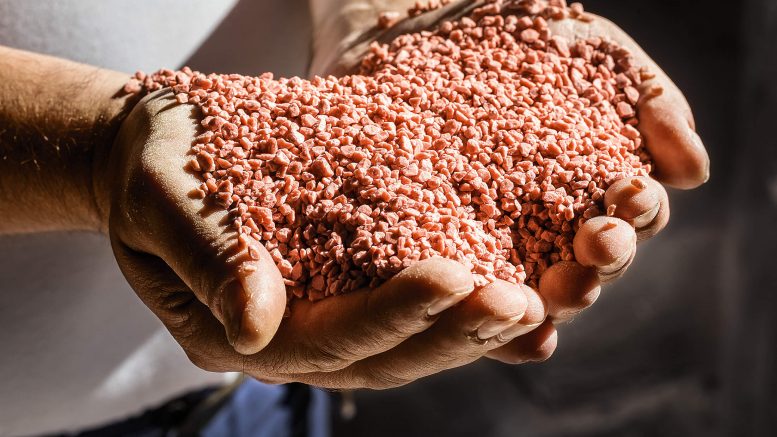“The potash market, in general, is governed by long-term contracts and has difficulties to react quickly…”
Pedro Henrique Lopes Borio is Brazil’s ambassador to Canada, he was the chief of staff to the Minister of Labor, chief ceremonial advisor to the office of the president of the Supreme Federal Court and special advisor to federal and parliamentary matters.
Borio was also ambassador in Colombo, consul general in San Francisco and secretary of culture for the Federal District.

Pedro Henrique Lopes Borio, Brazil’s ambassador to Canada
AgriBrasilis – What are the most important agreements between Canada and Brazil in the agricultural sector?
Pedro Borio – Brazil has several sanitary and phytosanitary agreements with Canada, that allow the export of agricultural products produced in the country. These agreements are always updated to include new products.
In 2022, we were able to open the Canadian market for in natura beef from states that vaccinate against foot-and-mouth disease and, for pork, from the State of Santa Catarina.
In 2023, we expect to conclude the negotiations for the recognition of the States of Paraná and Rio Grande do Sul as areas free of foot-and-mouth disease without vaccination and swine diseases, that will also allow exports from these states.
Work is also being done on recognizing the States of Acre and Rondônia, as well as portions of the States of Amazonas and Mato Grosso, as areas free of foot-and-mouth disease without vaccination.
AgriBrasilis – Is there room for growth in exports of agricultural products to Canada? What actions has the Brazilian government taken to expand this market?
Pedro Borio – Yes, there is potential for expanding Brazilian agricultural exports. Canada is a major food importer, but our presence in the market remains concentrated in traditional products, that represent 80% of exports – sugar (51%), coffee (18%), and meat (9%).
We have the potential to go much further, such as in fruits and products with greater added value, such as beverages and fish.
Our meat – beef and poultry – is already well accepted. They are competitive products both in terms of quality and price, but exports are limited by quotas established by the government of Canada.
We will continue working to establish specific quotas compatible with our export potential, whether bilaterally or within the scope of multilateral/plurilateral negotiations.
AgriBrasilis – What are Canadian customs and non-customs barriers to importing agricultural products from Brazil?
Pedro Borio – In general, Canada uses tariff quotas to restrict imports of agricultural products. These barriers limit our participation in the Canadian beef and poultry markets. The certifications I mentioned also end up being barriers sometimes.
AgriBrasilis – In your opinion, what are the ways for Canada to increase fertilizer production?
Pedro Borio – Canada has great potential to grow. Regarding Brazil, it was of great importance for the country to secure imports of potash, that is central to fertilizer production, after the supply disruptions at the beginning of last year because of the conflict in Ukraine.
Canada is a major potash producer and the largest supplier to Brazil. We have constant dialogue with Canpotex, responsible for 85% of Canada’s exports. We were thus able to increase potash imports by 1.7 million tonnes in the first half of 2022, enough for the needs of the 2022/23 harvest.
There is still the strong possibility of large investments for production in Brazil itself.
AgriBrasilis – Are there any restrictions on importing fertilizers from Canada? Why doesn’t Canada supply more?
Pedro Borio – The restrictions are more a result of the conflict in Ukraine. The potash market, in general, is governed by long-term contracts and has difficulties to react quickly in the face of an unforeseen increase in demand or serious disturbances like this one.
The companies claim that they are unable to increase supply in the short term because of bottlenecks in the flow of the product. There is a lack, for example, of wagons to transport production, even ships and port capacity.
Even so, Brazil’s supply was guaranteed during the acute phase of the crisis and stocks are back to normal. Brazil also obtained, in March of last year, a guarantee of additional supply of potash, that ensured the supply of fertilizers for planting the 2022/23 harvest.
AgriBrasilis – What are the prospects for the trade relationship between Brazil and Canada in 2023? What is to expect from the new government?
Pedro Borio – Despite the pandemic, economic ties between the two countries continued to strengthen. In 2022, there was an extremely significant increase of 41.15% in trade compared to 2021, a year that had already had a record in trade.
Trade flows reached US$ 10.568 billion, with exports to Canada of US$ 5.382 billion and imports of US$ 5.186 billion. The positive balance was US$ 196.289 million, despite the considerable increase (in volume and price) in our potash purchases.
It should be noted that the opening of the Canadian beef and pork markets, in March 2022, should contribute even more to the increase in Brazilian exports this year.
Finally, it is important to emphasize that we will continue negotiating the Mercosur free trade agreement with Canada. We expect to see important progress on this front, that could bring even greater commercial expansion.
READ MORE:

